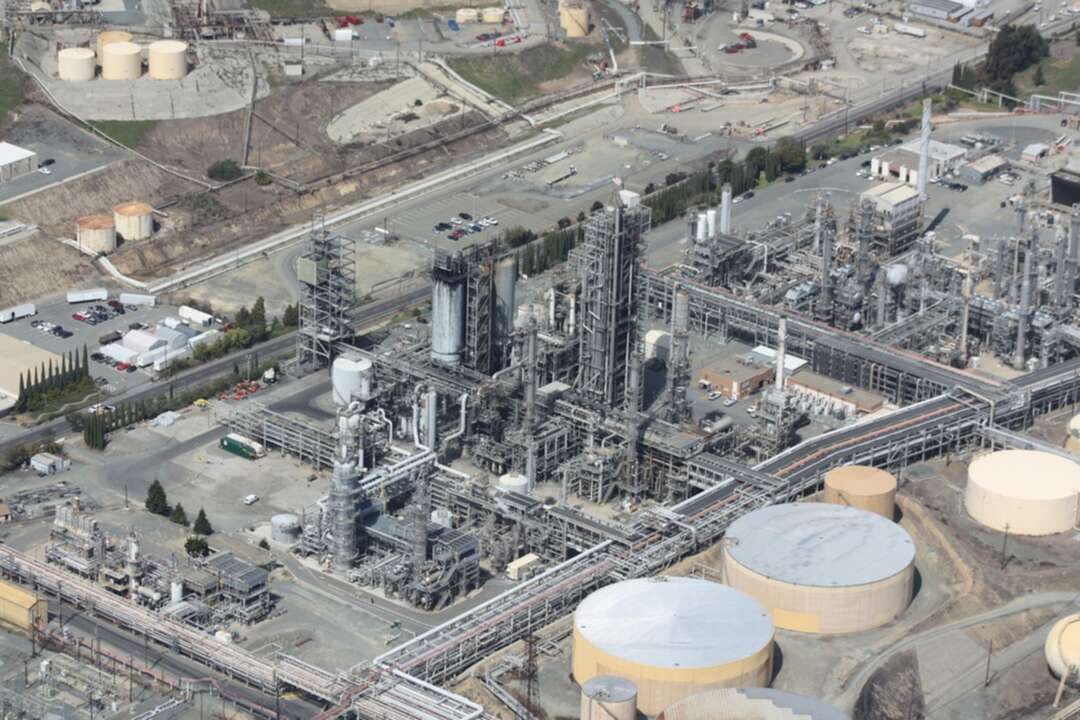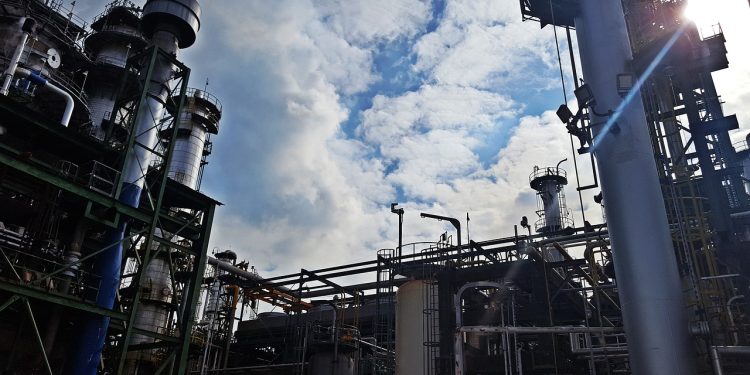-
US oil prices rise for fifth day to their highest since 2014

The Channel News Asia reported citing Reuters, U.S. oil prices rose for a fifth day on Wednesday to their highest since 2014 amid global concerns about energy supply on signs of tightness in crude, natural gas and coal markets.
Brent crude prices also climbed for a fourth day on the supply anxiety, particularly after the Organization of the Petroleum Exporting Countries (OPEC) and its allies, known as OPEC+, decided on Monday to say with their planned output increase rather than boosting it further.
U.S. West Texas Intermediate (WTI) oil earlier rose to US$79.18 a barrel, the highest since Nov. 10, 2014. The market was up 0.15per cent, or 12 cents, at US$79.05 a barrel, as of 0128 GMT.
Brent crude added 0.15per cent, or 12 cents US$82.68 a barrel after rising to a three-year high in the previous session.

On Monday, OPEC+ agreed to adhere to its July pact to boost output by 400,000 barrels per day (bpd) each month until at least April 2022, phasing out 5.8 million bpd of existing production cuts.
Read more: US senators call on Joe Biden to expel Russian diplomats over visas issue
ANZ said in a note: "Crude oil extended gains as investors fret about tightness in the market as the energy crisis hikes demand."
"The (OPEC+) increase was well below what the market was expecting, considering the energy crunch across the globe. Not surprisingly, there is speculation that OPEC will be forced to move before the next scheduled meeting if demand continues to surge."
Late last month, the OPEC+ Joint Technical Committee (JTC) said it expected a 1.1 million bpd supply deficit this year, which could turn into a 1.4 million bpd surplus next year.
Oil prices have surged more than 50per cent this year, adding to inflationary pressures that crude-consuming nations such as the United States and India are concerned will derail recovery from the COVID-19 pandemic.
Read more: Former Facebook employee, Frances Haugen, heavily criticises the company
Despite pressure to ramp up output, OPEC+ was concerned that a fourth global wave of COVID-19 infections could hit the demand recovery, a source told Reuters a little before Monday's talks.
However, inventory data from the United States, the world's biggest oil consumer, showed some signs of slowing fuel demand.
The American Petroleum Institute reported U.S. oil inventories rose by 951,000 barrels in the week to Oct. 1, website Oilprice.com reported on Tuesday.
Gasoline and distillate fuel inventories also climbed, the website reported, citing the API data.
Source: cna
Tags
You May Also Like
Popular Posts
Caricature
BENEFIT Sponsors BuildHer...
- April 23, 2025
BENEFIT, the Kingdom’s innovator and leading company in Fintech and electronic financial transactions service, has sponsored the BuildHer CityHack 2025 Hackathon, a two-day event spearheaded by the College of Engineering and Technology at the Royal University for Women (RUW).
Aimed at secondary school students, the event brought together a distinguished group of academic professionals and technology experts to mentor and inspire young participants.
More than 100 high school students from across the Kingdom of Bahrain took part in the hackathon, which featured an intensive programme of training workshops and hands-on sessions. These activities were tailored to enhance participants’ critical thinking, collaborative problem-solving, and team-building capabilities, while also encouraging the development of practical and sustainable solutions to contemporary challenges using modern technological tools.
BENEFIT’s Chief Executive Mr. Abdulwahed AlJanahi, commented: “Our support for this educational hackathon reflects our long-term strategic vision to nurture the talents of emerging national youth and empower the next generation of accomplished female leaders in technology. By fostering creativity and innovation, we aim to contribute meaningfully to Bahrain’s comprehensive development goals and align with the aspirations outlined in the Kingdom’s Vision 2030—an ambition in which BENEFIT plays a central role.”
Professor Riyadh Yousif Hamzah, President of the Royal University for Women, commented: “This initiative reflects our commitment to advancing women in STEM fields. We're cultivating a generation of creative, solution-driven female leaders who will drive national development. Our partnership with BENEFIT exemplifies the powerful synergy between academia and private sector in supporting educational innovation.”
Hanan Abdulla Hasan, Senior Manager, PR & Communication at BENEFIT, said: “We are honoured to collaborate with RUW in supporting this remarkable technology-focused event. It highlights our commitment to social responsibility, and our ongoing efforts to enhance the digital and innovation capabilities of young Bahraini women and foster their ability to harness technological tools in the service of a smarter, more sustainable future.”
For his part, Dr. Humam ElAgha, Acting Dean of the College of Engineering and Technology at the University, said: “BuildHer CityHack 2025 embodies our hands-on approach to education. By tackling real-world problems through creative thinking and sustainable solutions, we're preparing women to thrive in the knowledge economy – a cornerstone of the University's vision.”
opinion
Report
ads
Newsletter
Subscribe to our mailing list to get the new updates!






















